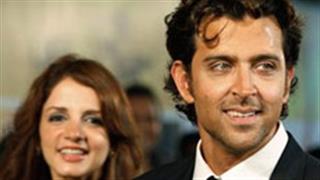In a candid chat with CS, the singer talks about destiny's play and the charm of live recordings:
The highs and lows
I was briefly under the guidance of Satyanarayan Mishra ji from the Benaras Gharana. But I stuck to light classical. I learnt ten thaats and I practiced only with that. When my father passed away in 1987, I religiously started doing riyaz two hours a day.
After my father's demise, I did many songs with Lakshmikant Pyarelal, Kalyanji Anandji, Rajesh Roshan, R D Burman for five years. Then, I felt it was time to pull back.

Time rules
I don't feel bad when people say that my time is gone. It's a cycle; your time keeps coming back after a while. Destiny's always in play.
There's this song of my father by Anand Bakshi, the words of which are: 'Kal tak main akela tha, aaj zamaana saath hai, waqt waqt ki baat hai, waqt waqt ki baat hai'. It happened with my father too.
He was at the peak in his acting days when his films started flopping, so there was a lull in his career. Then he came back with a bang. But he always said, `I am the same Kishore Kumar that I was, just that time has ruled the course of my career.` So, even I am the same Amit Kumar.

Gone are the days
Live recordings don't happen now. Earlier, every musician would get their instrument to the recording room and singers would sing. It used to be so effective!
There were no softwares to treat the glitches in voices and we had to keep giving takes until both, we and the musicians got it right together. It was a feeling of achievement. Even the sound of real instruments gave a different touch to songs.
The music director would sit ordering like a king and after 10-12 takes, and two or three hours, he would approve. Now, there's barely any effort. Live singing has a different feel for sure.




















